The International Community Arts Festival (ICAF) began in 2001, when Rotterdam was European Capital of Culture. What started as a small-scale exchange between community theatre companies—initiated by Rotterdams Wijktheater—has since grown into a global and interdisciplinary organisation working at the intersection of art and society.
Across its editions, over the past 25 years, ICAF has brought together artists, communities and organisations from around the world, with a consistent focus on inclusion, co-creation, long-term relationships and lived experience as artistic starting points. The festival connects local practices in Rotterdam with international perspectives, creating space for exchange, reflection and shared learning.
Since 2025, ICAF has taken this work into a new phase as an independent foundation.
In 2026, ICAF reaches its 10th edition and marks 25 years as a programme.
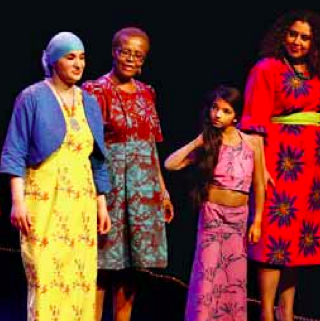
ICAF introduced the English term ‘community theatre’ to the Netherlands and provided a broad audience the opportunity to become familiar with this growing worldwide movement in the arts.
2001
ICAF introduced the English term ‘community theatre’ to the Netherlands and provided a broad audience the opportunity to become familiar with this growing worldwide movement in the arts.
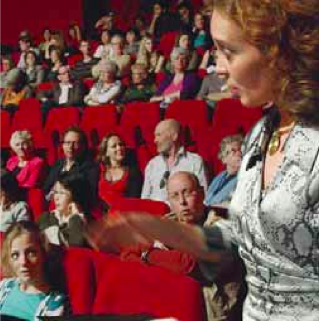
ICAF focussed on methodologies of how to create and how to produce community theatre. This time, the event was a mix of discussions and workshops in which guests demonstrated (or talked about) their methods, followed by performances in the evenings.
2003
ICAF focussed on methodologies of how to create and how to produce community theatre. This time, the event was a mix of discussions and workshops in which guests demonstrated (or talked about) their methods, followed by performances in the evenings.

The term ‘community art’ well and truly landed in the Netherlands and the practice quickly diversified all over the country. ICAF was no longer satisfied with only showcasing or verbally presenting work; we wanted to leave something behind that would last long after the festival had finished: our first artist-in-residency was born.
2005
The term ‘community art’ well and truly landed in the Netherlands and the practice quickly diversified all over the country. ICAF was no longer satisfied with only showcasing or verbally presenting work; we wanted to leave something behind that would last long after the festival had finished: our first artist-in-residency was born.
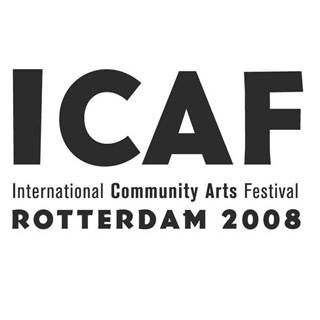
Community arts researcher Eugene van Erven came on board as programmer and through his international network opened the festival up to literally all corners of the world. Anamaria Cruz joins as festival producer. For the first time, ICAF manages to present community arts from all continents. Since then, until Eugene’s retirement in 2020, they formed an inseparable team.
2008
Community arts researcher Eugene van Erven came on board as programmer and through his international network opened the festival up to literally all corners of the world. Anamaria Cruz joins as festival producer. For the first time, ICAF manages to present community arts from all continents. Since then, until Eugene’s retirement in 2020, they formed an inseparable team.
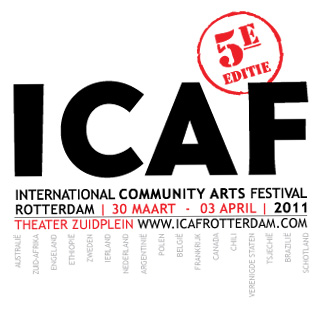
ICAF took its interdisciplinary and global ambitions to another level including five artist-in-residencies in different neighborhoods in Rotterdam. Furthermore, the featured art disciplines of the festival were still relatively underdeveloped in the Dutch community art sector. In hindsight, 2011 may well have been a turning point for ICAF. More than before, it caused a buzz that visitors to our event took home and passed on within their own networks. As a result, we received requests and invitations from all over the world, which in turn led to new contacts in places like Portugal, Spain, and Francophone Africa.
2011
ICAF took its interdisciplinary and global ambitions to another level including five artist-in-residencies in different neighborhoods in Rotterdam. Furthermore, the featured art disciplines of the festival were still relatively underdeveloped in the Dutch community art sector. In hindsight, 2011 may well have been a turning point for ICAF. More than before, it caused a buzz that visitors to our event took home and passed on within their own networks. As a result, we received requests and invitations from all over the world, which in turn led to new contacts in places like Portugal, Spain, and Francophone Africa.
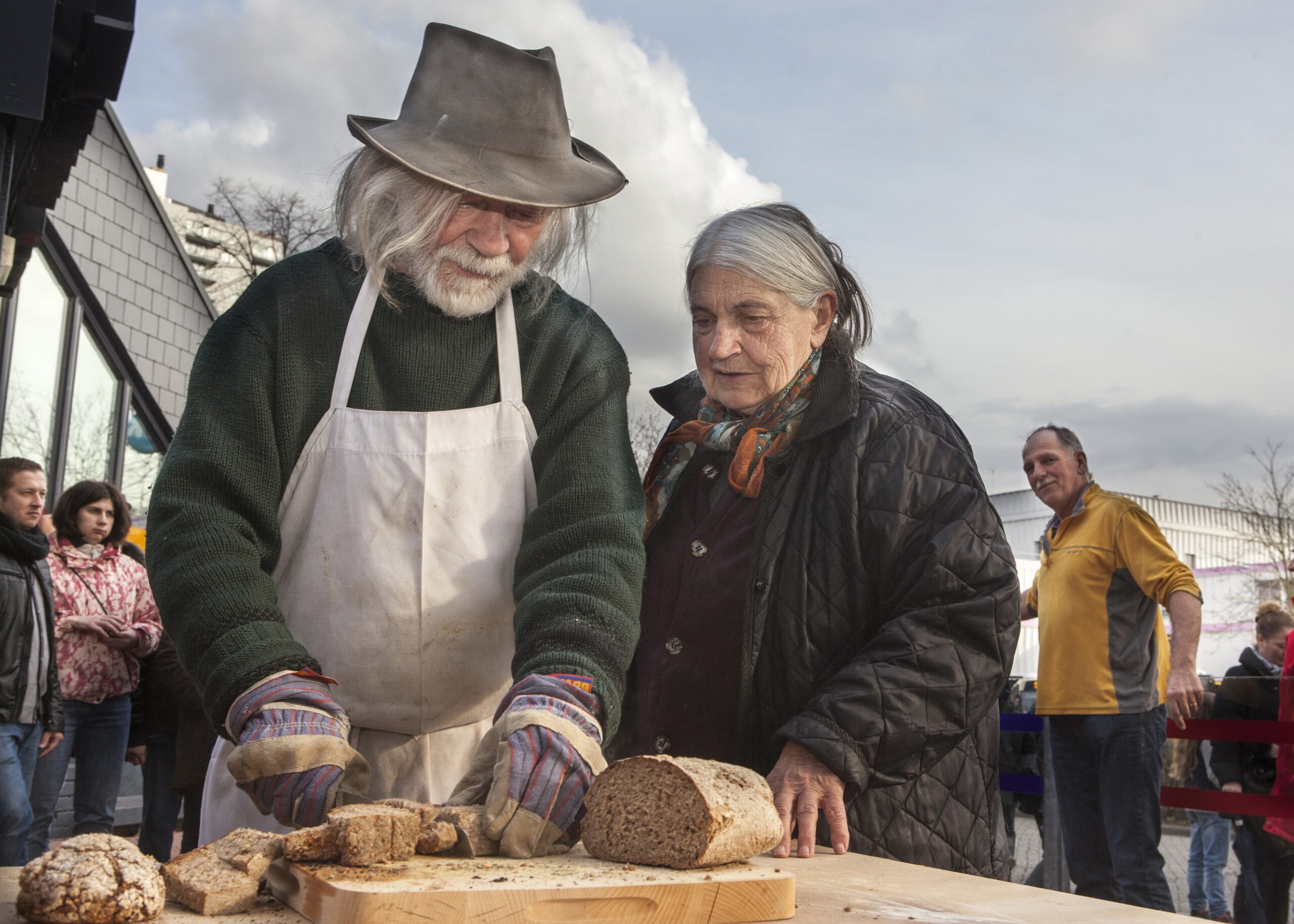
With ‘space’ as our theme, in 2014 more than ever before we programmed events outside: an Aboriginal storytelling performance from Canada on one of the harbour wharves, a colourful and musical street parade co-created with many local participants under the supervision of Catalina García from Colombia and a fully functioning outdoor bread-oven built by Peter Schumann of Bread & Puppet Theatre.
Watch our ICAF 2014 documentary.
2014
Bread and Puppet Theater
With ‘space’ as our theme, in 2014 more than ever before we programmed events outside: an Aboriginal storytelling performance from Canada on one of the harbour wharves, a colourful and musical street parade co-created with many local participants under the supervision of Catalina García from Colombia and a fully functioning outdoor bread-oven built by Peter Schumann of Bread & Puppet Theatre.
Watch our ICAF 2014 documentary.
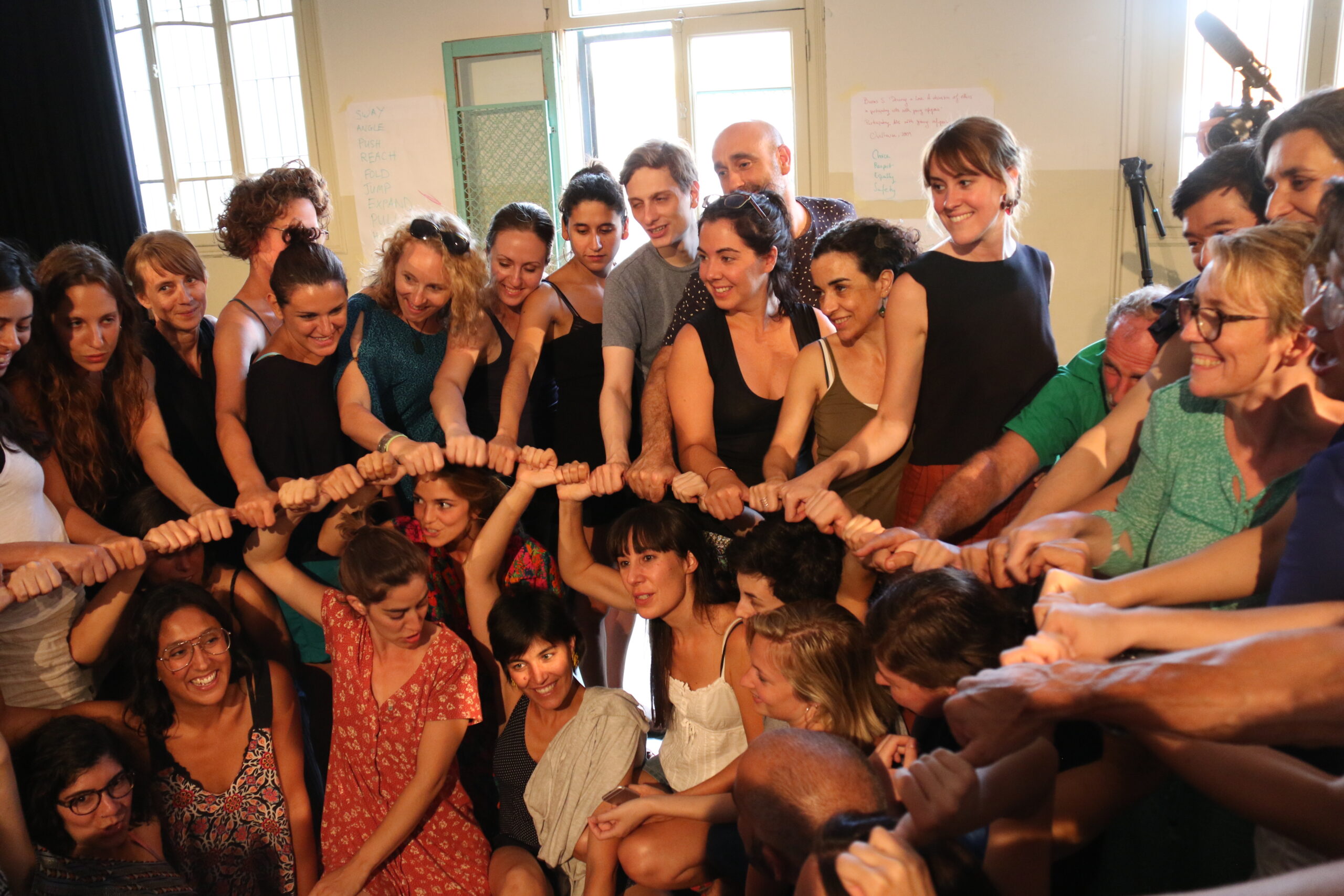
ICAF organised the first ICAF Summer School in Utrecht Leidsche Rijn, in collaboration with the Sharing Arts Society. The summer schools arise from the need to go more deeply into a specific methodology than is possible during a single festival. For Dutch makers it is an opportunity to learn one-to-one from foreign community arts makers, and for foreign makers a way to test their methodology outside their own local context.
2016
ICAF organised the first ICAF Summer School in Utrecht Leidsche Rijn, in collaboration with the Sharing Arts Society. The summer schools arise from the need to go more deeply into a specific methodology than is possible during a single festival. For Dutch makers it is an opportunity to learn one-to-one from foreign community arts makers, and for foreign makers a way to test their methodology outside their own local context.
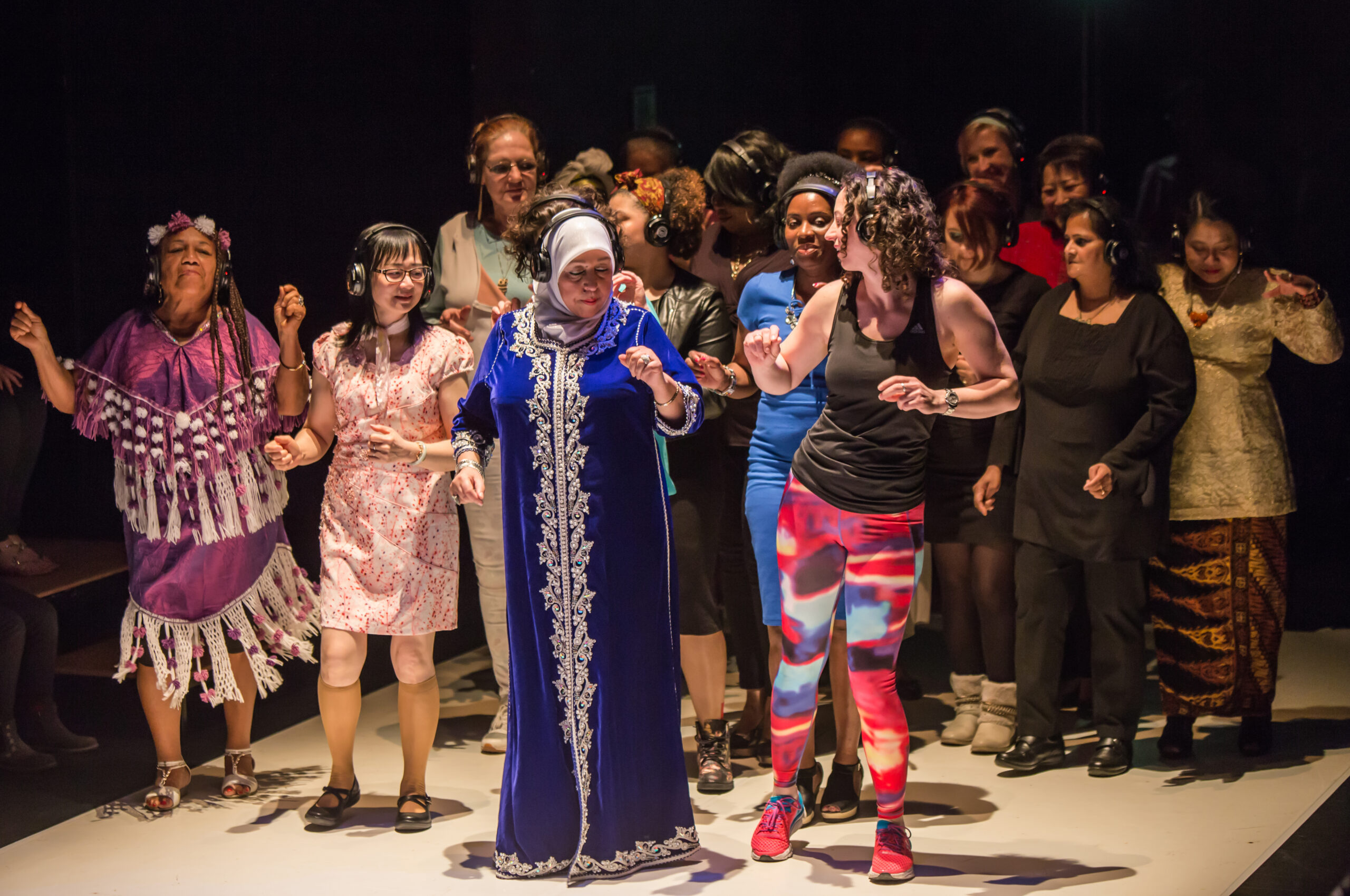
ICAF expanded its permanent team with community arts dramaturge and theater maker Jasmina Ibrahimovic in the role of assistant programmer. This is also the first time ICAF that works with international guest curators. For this edition it was Matt Jennings (Northern Ireland), Tania Cañas (Australia) and Bonnie Chan (China).
Watch our ICAF 2017 documentary.
ICAF 2017
ICAF expanded its permanent team with community arts dramaturge and theater maker Jasmina Ibrahimovic in the role of assistant programmer. This is also the first time ICAF that works with international guest curators. For this edition it was Matt Jennings (Northern Ireland), Tania Cañas (Australia) and Bonnie Chan (China).
Watch our ICAF 2017 documentary.

ICAF organised its first Summer School in Barcelona, at the invitation of the Grec Festival, in collaboration with Eva Garcia from Comuart. The Summer School consisted of three modules led by dr. Sheila Preston (UK), Forklift Danceworks (USA) and Teatro Linea de Sombra (Mexico).
2018
SummerSchool Barcelona
ICAF organised its first Summer School in Barcelona, at the invitation of the Grec Festival, in collaboration with Eva Garcia from Comuart. The Summer School consisted of three modules led by dr. Sheila Preston (UK), Forklift Danceworks (USA) and Teatro Linea de Sombra (Mexico).

In the run-up to the festival in 2020, ICAF was working with international and national consultants for the first time. The consultants are our eyes and ears in the world and point out our blind spots. With the announced departure of Eugene van Erven, we wanted to safeguard and further nourish and grow the international network. The consultation sessions also gave birth to the idea of the global ICAF Hubs as satellite organisations in other parts of the world.
ICAF 2020
In the run-up to the festival in 2020, ICAF was working with international and national consultants for the first time. The consultants are our eyes and ears in the world and point out our blind spots. With the announced departure of Eugene van Erven, we wanted to safeguard and further nourish and grow the international network. The consultation sessions also gave birth to the idea of the global ICAF Hubs as satellite organisations in other parts of the world.
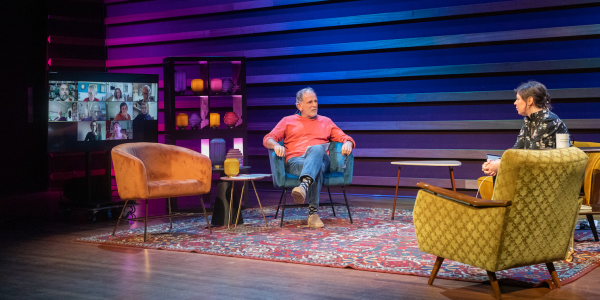
ICAF organises its first virtual MINI ICAF, with an ICAF Hub in Singapore, in partnership with community theater group Drama Box. After MINI ICAF Eugene van Erven retired and stayed on as voluntary advisor and scout. Jasmina becomes director of both the Rotterdams Wijktheater (the parent organisation of ICAF) and ICAF, and determines the direction for the future with Anamaria. In March 2021, the team was joined by curator and editor Amy Gowen.
MINI ICAF 2021
ICAF Rotterdam & ICAF Singapore HUB
ICAF organises its first virtual MINI ICAF, with an ICAF Hub in Singapore, in partnership with community theater group Drama Box. After MINI ICAF Eugene van Erven retired and stayed on as voluntary advisor and scout. Jasmina becomes director of both the Rotterdams Wijktheater (the parent organisation of ICAF) and ICAF, and determines the direction for the future with Anamaria. In March 2021, the team was joined by curator and editor Amy Gowen.
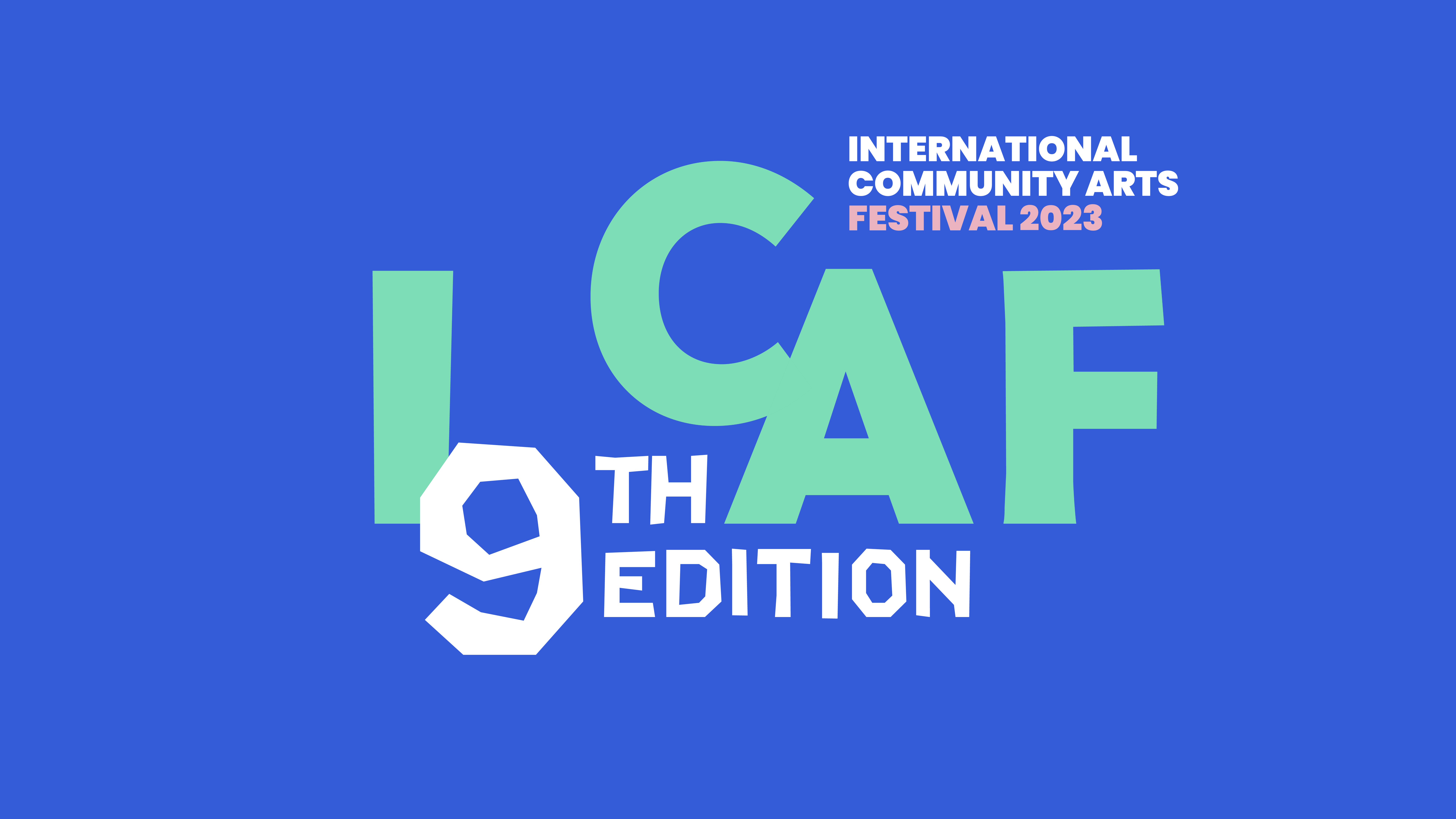
ICAF organises its 9th edition in Rotterdam under the theme of “Sound of Change” and builds an online platform that is a virtual manifestation of ICAF in the broadest sense of the word. Next to that ICAF starts developing the idea of physical ICAF Hubs and, together with our partners from Drama Box, we are preparing the first Hub-gathering in Singapore.
ICAF 2023
ICAF organises its 9th edition in Rotterdam under the theme of “Sound of Change” and builds an online platform that is a virtual manifestation of ICAF in the broadest sense of the word. Next to that ICAF starts developing the idea of physical ICAF Hubs and, together with our partners from Drama Box, we are preparing the first Hub-gathering in Singapore.
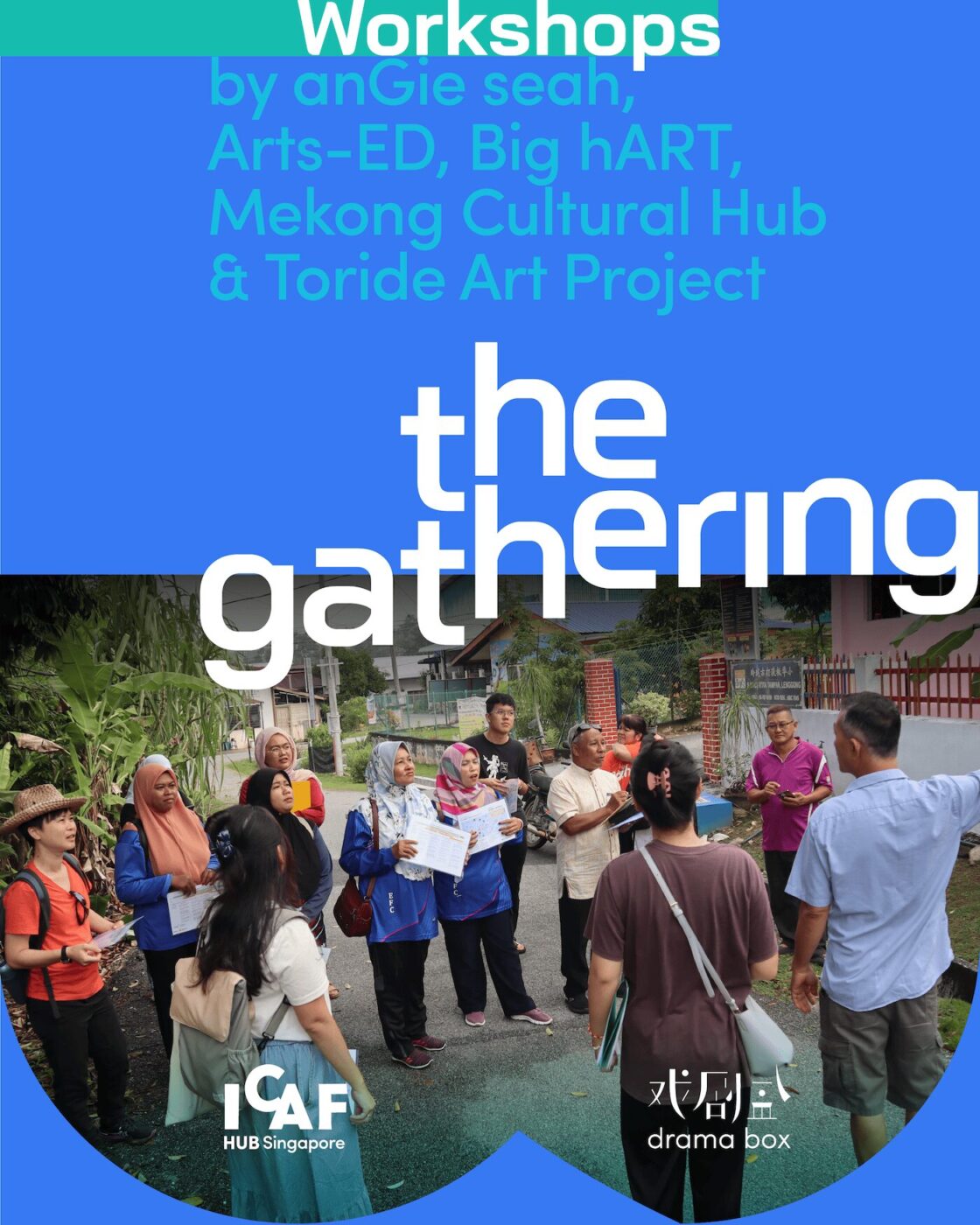
Our colleagues from Drama Box host their first ICAF-hub Gathering in June 2025.
The gathering brings together community arts organisations from Southeast Asia, laying the groundwork for a long-term regional network. Rooted in dialogue, care and long-term collaboration, the ICAF Hub Singapore reflects our shared commitment to community-based artistic practice and international exchange.
ICAF Hub Singapore 2025
Our colleagues from Drama Box host their first ICAF-hub Gathering in June 2025.
The gathering brings together community arts organisations from Southeast Asia, laying the groundwork for a long-term regional network. Rooted in dialogue, care and long-term collaboration, the ICAF Hub Singapore reflects our shared commitment to community-based artistic practice and international exchange.
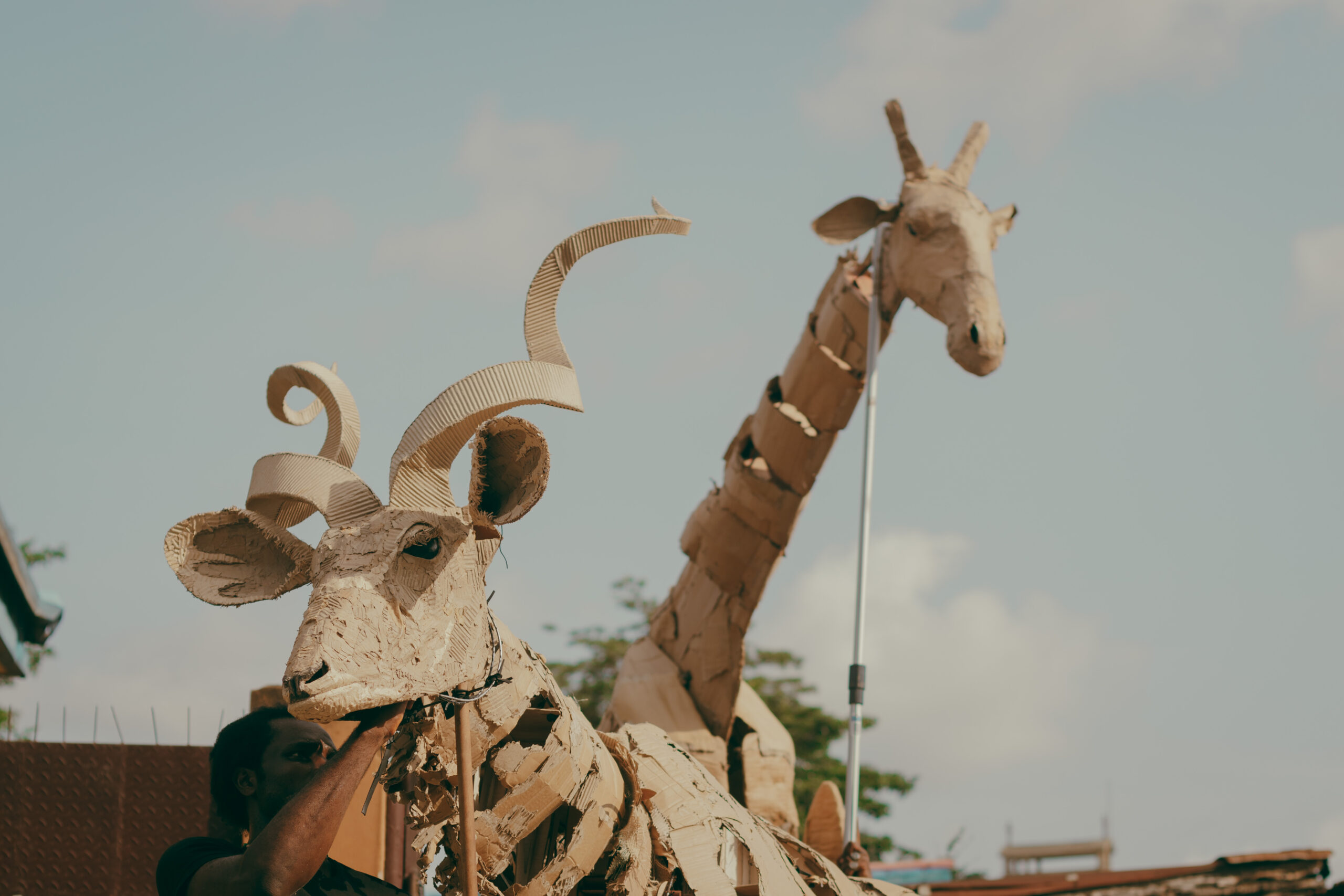
This year, we celebrate the 10th edition of our international festival with an extensive city programme and professionals programme in Rotterdam. To mark this anniversary edition, under the theme Space for Imagination, we present the largest participatory project in the festival’s history: The Herds.
ICAF 2026
10th edition
This year, we celebrate the 10th edition of our international festival with an extensive city programme and professionals programme in Rotterdam. To mark this anniversary edition, under the theme Space for Imagination, we present the largest participatory project in the festival’s history: The Herds.

